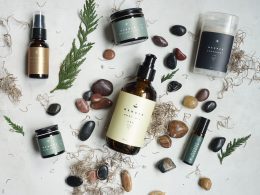Introduction:
Sebum production is a natural process that occurs in the skin, primarily driven by the sebaceous glands. Sebum, the skin’s natural oil, plays a crucial role in maintaining skin health and integrity. While sebum production is often associated with oily skin and acne, its connection to the aging process is a topic worth exploring. In this article, we will delve into the link between sebum production and skin aging, shedding light on the complex relationship between these two factors.
Understanding Sebum and its Functions:
Sebum is composed of lipids, such as triglycerides, wax esters, and fatty acids. Its primary function is to moisturize and protect the skin. Sebum helps to regulate moisture levels, providing a natural barrier that prevents excessive water loss and maintains skin hydration. Additionally, sebum contributes to the skin’s acid mantle, a slightly acidic protective layer that defends against harmful microorganisms.
The Role of Sebum in Skin Aging:
1. Moisture and Hydration: Adequate moisture and hydration are crucial for maintaining skin health and preventing premature aging. Sebum, with its moisturizing properties, helps to retain moisture in the skin. Well-hydrated skin appears plumper, smoother, and more youthful. However, it is important to note that excessive sebum production can lead to oily skin, which may be associated with acne breakouts and other skin concerns.
2. Lipid Barrier: The lipid barrier formed by sebum plays a significant role in protecting the skin from external aggressors. This barrier acts as a defense against environmental factors, such as pollution and UV radiation, which can contribute to skin damage and accelerated aging. The lipids in sebum help to maintain the skin’s integrity and prevent moisture loss, thus supporting the overall health of the skin.
3. Antioxidant Properties: Sebum contains antioxidants that help neutralize free radicals, which are unstable molecules that can cause oxidative stress and damage the skin cells. Oxidative stress is a key contributor to the aging process, and sebum’s antioxidant properties can assist in combating this damage.
4. Sebum Composition and Skin Types: The composition of sebum can vary among individuals and different skin types. Oily skin is characterized by an overproduction of sebum, while dry skin may have insufficient sebum production. Both extremes can present challenges in maintaining optimal skin health. Oily skin, though it may be associated with a delay in the appearance of fine lines and wrinkles, can also be prone to other concerns such as acne breakouts, enlarged pores, and an uneven complexion.
Managing Sebum Production and Promoting Healthy Aging:
1. Proper Cleansing: Regular cleansing is essential to remove excess sebum, dirt, and impurities without stripping the skin. Opt for gentle cleansers that balance the skin’s pH and do not disrupt the natural sebum production.
2. Moisturization: Regardless of skin type, moisturization is crucial for maintaining skin health. Choose lightweight, non-comedogenic moisturizers that provide hydration without clogging the pores.
3. Sun Protection: Protecting the skin from UV radiation is vital in preventing photoaging. Use broad-spectrum sunscreen with an SPF of 30 or higher and reapply regularly, especially when exposed to the sun for extended periods.
4. Balanced Skincare Routine: Establish a balanced skincare routine that includes regular exfoliation to remove dead skin cells and promote cell turnover. Incorporate antioxidant-rich products to combat oxidative stress and protect the skin against environmental damage.
5. Consult a Dermatologist: If you have concerns about your sebum production or skin aging, consult a dermatologist who can provide personalized recommendations and treatments tailored to your specific needs.
Conclusion:
Sebum production plays a multif
aceted role in the skin, influencing its moisture levels, barrier function, and antioxidant protection. While adequate sebum production and maintenance of the skin’s lipid barrier are beneficial for skin health and preventing premature aging, excessive sebum production can lead to oily skin and associated concerns. Finding a balance in sebum production and implementing a comprehensive skincare routine that addresses individual needs is key to promoting healthy aging and maintaining overall skin vitality.












